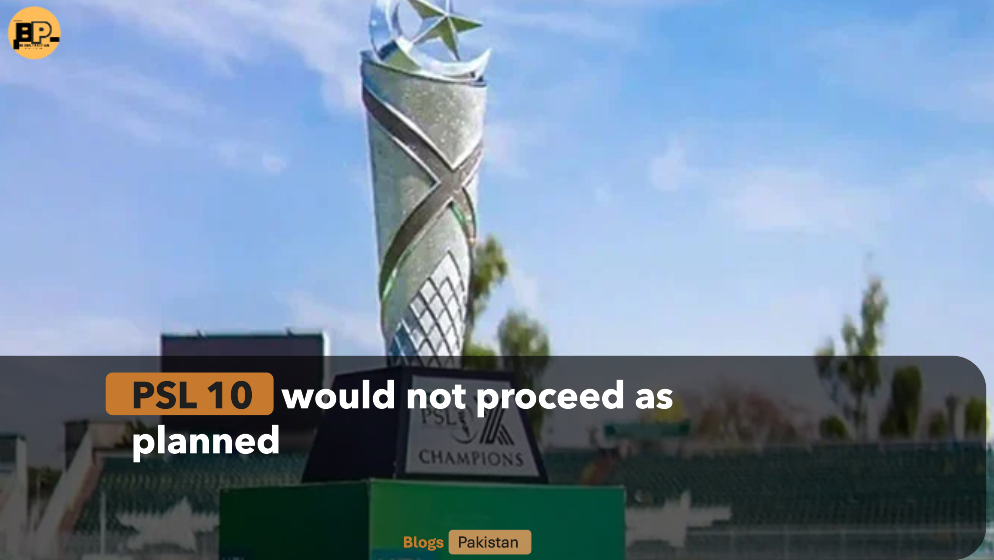The Pakistan Super League (PSL), a cornerstone of cricket in South Asia, has faced an abrupt interruption as the Pakistan Cricket Board (PCB) announced the indefinite postponement of its 10th season. This decision, driven by a mix of geopolitical tensions and logistical hurdles, has sent shockwaves through the cricketing community. Let’s unpack the events leading to this unprecedented pause and what it means for the future of the league.
The Sudden Announcement: PCB Prioritizes Safety Over Schedule
In a press conference led by PCB Chairman Mohsin Naqvi, officials confirmed that PSL Season 10 would not proceed as planned. The announcement followed days of uncertainty after a security breach near Rawalpindi Cricket Stadium, where an Indian drone strike targeted a bustling area known as Food Street. While no players or staff were harmed, the incident raised alarms about hosting high-profile matches in the region.
Naqvi emphasized that the board’s primary responsibility was to ensure the safety of athletes, support staff, and fans. “This was not a decision taken lightly,” he stated. “But given the volatile environment, continuing the tournament in Pakistan became untenable.”
From Relocation to Suspension: A Rapid Shift in Plans
Initially, the PCB had hoped to salvage the season by relocating remaining matches to Dubai. The UAE has long served as a neutral venue for cricket tournaments during times of political unrest. However, logistical complications arose almost immediately.
Why Dubai Fell Through
- Venue Availability: Dubai’s cricket stadiums were already partially booked for other events, leaving limited slots for PSL matches.
- Travel Logistics: Organizing international travel for teams, crew, and equipment on short notice proved challenging.
- Broadcast Conflicts: Adjusting global broadcasting schedules required coordination with multiple networks, which couldn’t be finalized in time.
By the time these hurdles became apparent, regional tensions had escalated further, prompting the PCB to abandon the relocation plan altogether.
The Ripple Effect: Stakeholders Left in Limbo
The suspension of PSL 10 has left players, franchises, and sponsors grappling with uncertainty. Here’s a breakdown of the key impacts:
Players and Teams
Many international stars had committed to the PSL as part of their pre-T20 World Cup preparations. With the league on hold, players like Babar Azam, Shaheen Afridi, and overseas recruits face disrupted schedules and lost opportunities to fine-tune their skills.
Financial Implications
Franchises are staring at significant financial losses. Ticket sales, merchandise revenue, and sponsorship deals tied to the league’s completion are now in jeopardy. Broadcasters, too, are reeling from the sudden loss of content during peak viewership periods.
Fan Disappointment
For millions of cricket enthusiasts, the PSL is more than a tournament—it’s a cultural event. Social media has been flooded with reactions, ranging from frustration to concern, with hashtags like #SavePSL and #CricketInCrisis trending globally.
A Broader Pattern: Cricket and Geopolitical Tensions
The PSL’s suspension mirrors recent challenges faced by other leagues, most notably the Indian Premier League (IPL). Earlier this year, the Board of Control for Cricket in India (BCCI) suspended an IPL match in Dharamsala following cross-border tensions, later attempting—and struggling—to shift fixtures to the UAE.
The UAE Venue Squeeze
Both the IPL and PSL have historically relied on UAE stadiums as backup venues. However, overlapping schedules and prior bookings have created a logistical bottleneck, underscoring the need for cricket boards to establish contingency plans in less politically sensitive regions.
Looking Ahead: What’s Next for PSL 10?
While the PCB has yet to announce new dates, speculation is rife about potential windows for resuming the tournament.
Possible Rescheduling Scenarios
- Post-T20 World Cup Slot: Late 2024 could offer a gap after the ICC T20 World Cup concludes in June.
- Hybrid Model: Splitting remaining matches between Pakistan and a neutral venue like Sri Lanka or England.
- Condensed Format: Reducing the number of matches to fit within a shorter timeframe.
Stakeholder Consultations Underway
The PCB has initiated talks with franchise owners, broadcast partners, and the International Cricket Council (ICC) to explore viable solutions. Key considerations include player availability, weather conditions, and avoiding clashes with other major tournaments.
The Bigger Picture: Cricket in a Volatile World
The suspension of PSL 10 highlights a growing reality: cricket is increasingly vulnerable to geopolitical conflicts. Leagues must now balance commercial ambitions with risk management strategies, including:
- Enhanced Security Protocols: Proactive measures to safeguard players and venues.
- Diversified Venue Options: Developing partnerships with countries outside traditional hubs.
- Diplomatic Engagement: Encouraging dialogue between cricket boards and governments to insulate sports from political disputes.
As the PCB navigates this crisis, the resilience of Pakistan’s cricketing ecosystem will be tested. For now, fans cling to hope that their beloved league will return—stronger and safer—when the time is right.









